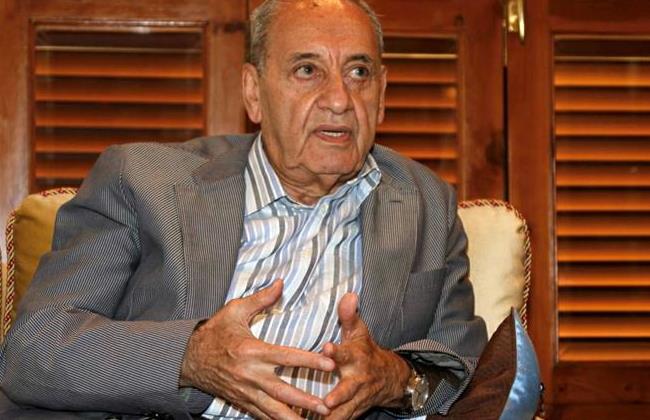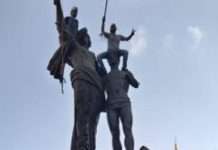Future-Hezbollah talks could begin next week: Berri
Dec. 05, 2014/Wassim Mroueh| The Daily Star
BEIRUT: A meeting held Thursday between Finance Minister Ali Hasan Khalil and Nader Hariri to prepare for dialogue between the Future Movement and Hezbollah could be the final one, Speaker Nabih Berri said, adding that talks could kick off next week. “The meeting, aimed at finalizing the agenda of the upcoming dialogue between Hezbollah and the Future Movement, could be the last one,” Berri was quoted as saying by his visitors Thursday. “If the agenda becomes ready [after this meeting], the first dialogue session will be held next week. In any case, talks should start before the end of this month,” Berri said.
The meeting was the second this week between Nader Hariri and Khalil, who are political aides to former Prime Minister Saad Hariri and Berri respectively. The speaker explained that the agenda would contain items that the two rival parties could agree on and disregard disputed issues such as Hezbollah’s arsenal and its military involvement in Syria.
Asked whether the presidential election would be on the agenda, Berri said: “Yes, just like other major topics including the election law.”
Future Movement lawmaker Ammar Houri told The Daily Star that things were heading in the right direction regarding preparations for dialogue.
He added that the agenda of the talks has yet to be finalized before setting a date for the first session.
U.N. Special Coordinator for Lebanon Derek Plumbly welcomed during a meeting with Berri the latter’s efforts in launching the dialogue.
“Our discussions focused on the situation in Lebanon and regional developments. I welcomed the recent efforts, including those of Speaker Berri, to push for dialogue between political parties in Lebanon,” Plumbly said after the meeting.
“The speaker and I agreed that dialogue is necessary for strengthening Lebanon’s security, stability and coexistence and for moving forward on outstanding constitutional steps,” Plumbly added.
Later in the day, Berri also received MP Alain Aoun, who was dispatched by Free Patriotic Movement chief Michel Aoun, and discussed with him the latest news regarding efforts by a parliamentary subcommittee to draft a new election law. “I think [the FPM] and Speaker Berri agree that it is impossible to conduct new elections based on the current law,” Aoun told reporters after the meeting, in reference to what is known as the district-based, winner-takes-all 1960 law, which was used in the last parliamentary elections in 2009. “If the Lebanese really want elections, we should reach a new electoral law.”Speaking later to The Daily Star, Aoun said that in addition to the election law, he discussed with the speaker the preparations for dialogue between the Future Movement and Hezbollah.
“We have no problem with [the planned dialogue], on the contrary we encourage dialogue. What is important is that it produces an outcome,” Aoun said. Asked whether he feared that the talks could lead to an agreement between the two parties on a new presidential candidate without taking into consideration the opinion of Christian parties, Aoun said: “This is not a concern for us.”
“Hezbollah was clear that Gen. [Michel] Aoun has a major say in presidential elections and former Prime Minister Saad Hariri said in his most recent interview that he would refer to his [Christian] allies before making a decision on this matter,” Aoun said. “Christians cannot be sidelined when it comes to this issue.”
Separately, Mikhail Bogdanov, Russia’s deputy foreign minister, arrived in Lebanon late Thursday and will hold talks with rival Lebanese politicians Friday. Also, diplomatic sources said Federica Mogherini, the high representative of the EU for Foreign Affairs and Security Policy, was expected to visit Lebanon Tuesday.
Speaking to The Daily Star, the sources said that Mogherini would discuss hot political topics with Lebanese officials, adding that she would tackle issues discussed between Prime Minister Tammam Salam and EU officials during his trip to Belgium earlier this week. Salam stressed during his visit that Lebanon was in need of international support to face the huge influx of Syrian refugees and security threats resulting from the civil war next door.


















